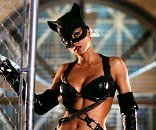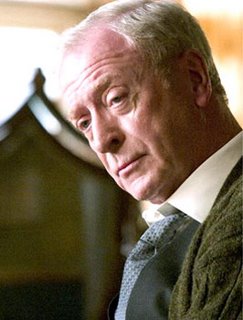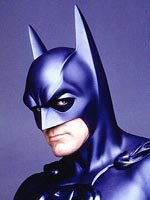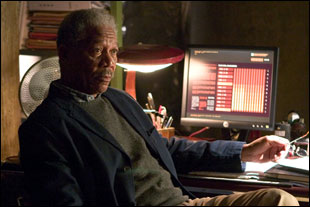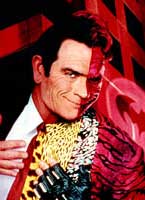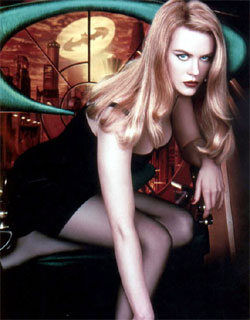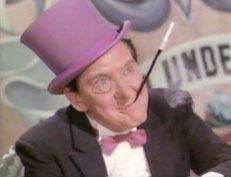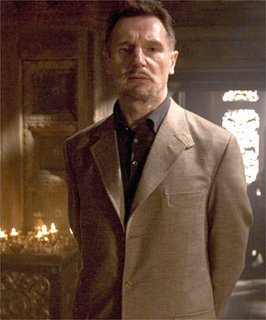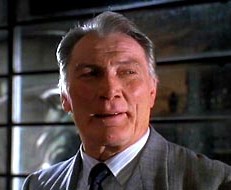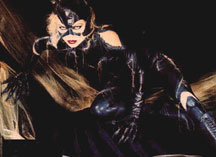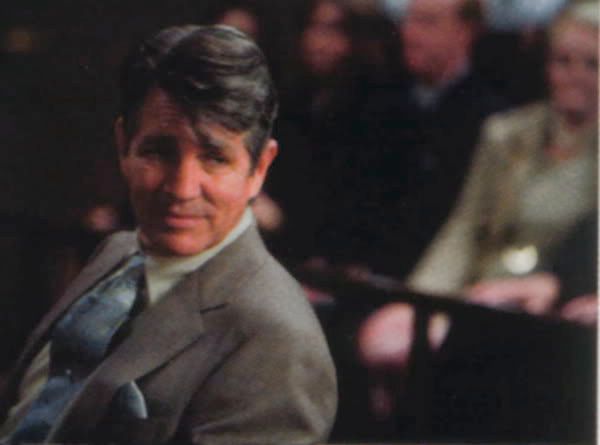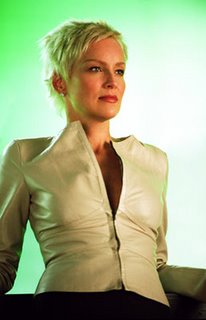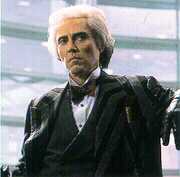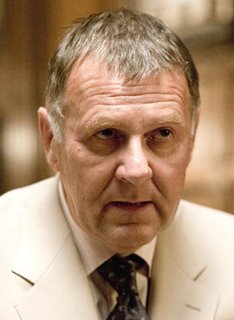[Cross posted at Rice Daddies.]
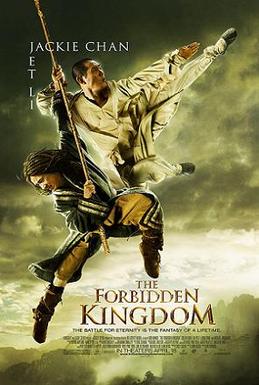 I’ve wanted to write this for a while now, so what better time than the opening day of the long awaited Jet Li vs. Jackie Chan duel, The Forbidden Kingdom? All opening within a month of one another, three movies (21, The Forbidden Kingdom, and Harold & Kumar Escape from Guantanamo Bay) have significant relevance to Hollywood’s current ideas about Asian American actors and audiences. One movie is a true story about Asian American MIT students. Another features two icons of Hong Kong cinema facing off for the first time. And the third is the big budget sequel to a cult hit about a couple Asian American stoners. The studios’ approaches to—and audiences’ expectations of—these films are quite telling about the current state of Asian Americans in mainstream Hollywood.
I’ve wanted to write this for a while now, so what better time than the opening day of the long awaited Jet Li vs. Jackie Chan duel, The Forbidden Kingdom? All opening within a month of one another, three movies (21, The Forbidden Kingdom, and Harold & Kumar Escape from Guantanamo Bay) have significant relevance to Hollywood’s current ideas about Asian American actors and audiences. One movie is a true story about Asian American MIT students. Another features two icons of Hong Kong cinema facing off for the first time. And the third is the big budget sequel to a cult hit about a couple Asian American stoners. The studios’ approaches to—and audiences’ expectations of—these films are quite telling about the current state of Asian Americans in mainstream Hollywood. The impetus for writing this post was actually driven by seeing TV spots for the Chan/Li actioner. The film, which is a quasi-sequel/follow up to the classic Journey to the West, has been anticipated with bated breath by both of Jackie’s and Jet’s legions of fans. I had followed some of the news about the movie ever since it was announced last year and was disappointed to learn that a major plot point in the flick involves a white teenager (with a kung fu fetish, of course) being transported back to ancient China. On the one hand, I can understand the premise of the time travel conceit: modern audiences need a readily identifiable character to help navigate the “exotic” fantasyland of China (which is problematic in its own right, but that’s for another post). This is a typical storytelling technique that can be found in Alice in Wonderland, The Neverending Story, and The Matrix. My issue isn’t with the framing of the film in these terms. What I find troubling is the notion that said teenager had to be Caucasian. Here’s the plot synopsis according to IMDB:
In Forbidden Kingdom, American teenager Jason (Michael Angarano), who is obsessed with Hong Kong cinema and kungfu classics, finds an antique Chinese staff in a pawn shop: the legendary stick weapon of the Chinese sage and warrior, the Monkey King (Jet Li). With the lost relic in hand, Jason unexpectedly finds himself transported back to ancient China.
There, he meets the drunken kungfu master, Lu Yan (Jackie Chan); an enigmatic and skillful Silent Monk (Jet Li); and a vengeance-bent kungfu beauty, Golden Sparrow (Crystal Liu Yi Fei), who lead him on his quest to return the staff to its rightful owner, the Monkey King - imprisoned in stone by the evil Jade Warlord (Collin Chou) for five hundred years. Along the way, while attempting to outmaneuver scores of Jade Warriors, Cult Killers and the deadly White Hair Demoness, Ni Chang (Li Bing Bing), Jason learns about honor, loyalty and friendship, and the true meaning of kungfu, and thus frees himself.
The decision to cast a Michael Angarano as Jason is part of the Hollywood tradition to—as The Cinematical’s Peter Martin puts it, “experience an exotic locale peopled entirely by "others" through the eyes of a Caucasian character.” As I said earlier, I have no issue with the “fish out of water” premise. However, I think the producers of the film would have been smarter to make the role of Jason an Asian American character. Not only would that have given an opportunity to a young Asian American actor to star in a surefire hit, it might have given the movie a more nuanced message. Again, Martin:
If the producers had dared to cast an Asian, Asian-American, or African-American, that could have opened up all kinds of interesting twists: the young Asian not acquainted with his own cultural history, the Asian-American torn between two cultures, the African-American similarly -- but differently -- torn.
From a marketing standpoint, many execs still believe that audiences won’t flock to a movie unless the lead is white (more on that later). They’d argue that money, not political correctness, is the motivating factor when casting roles that could otherwise go to actors of color. After all, it’s said that the only color Hollywood sees is green. Therefore, making Jason a Caucasian is viewed solely as a financial decision. Even if that were true, which is debatable, it’s interesting to note that much of the marketing materials for Forbidden Kingdom make little or no mention of Angarano’s participation in the film. Instead, many of the TV spots I’ve seen, as well as the film’s one-sheet, play up the martial arts aspect and focus on the iconography of Jackie Chan and Jet Li. So if shoehorning a Caucasian teenager into the plotline is necessary to attract that demographic to the theaters, why leave him out of the marketing? Well, probably because “Jackie Chan Fights Jet Li—For the First Time!” kinda sells itself. Which brings me back to my original point: how unnecessary it is to make Jason’s character Caucasian, and thus, denying an Asian American actor a plum part in a big film.
Alas, at least Jason is a fictional character; which can’t be said for 21, another movie with ramifications in the Asian American community. Based on Ben Mezrich’s 2003 book Bringing Down the House, the movie follows a group of MIT students as they use their indomitable math skills to take Vegas casinos for millions. In Mezrich’s book, the students were a multicultural bunch whose leader was revealed to be an Asian American named Jeff Ma. In fact, one of the plot points in the book dealt with how the group used ethnic stereotypes as part of their cover when suckering dealers at the blackjack tables. Apparently, the studio thought a true story about Asian American MIT students would not appeal to mainstream (read: Caucasian) audiences unless the leads were white. Therefore, rather than find a hot, young Asian American actor to portray Jeff’s character, Columbia Pictures cast British Across the Universe star Jim Sturgess. In an article published in 2005, Mezrich discussed the studio’s thought process when casting the movie:
Down the House, the movie follows a group of MIT students as they use their indomitable math skills to take Vegas casinos for millions. In Mezrich’s book, the students were a multicultural bunch whose leader was revealed to be an Asian American named Jeff Ma. In fact, one of the plot points in the book dealt with how the group used ethnic stereotypes as part of their cover when suckering dealers at the blackjack tables. Apparently, the studio thought a true story about Asian American MIT students would not appeal to mainstream (read: Caucasian) audiences unless the leads were white. Therefore, rather than find a hot, young Asian American actor to portray Jeff’s character, Columbia Pictures cast British Across the Universe star Jim Sturgess. In an article published in 2005, Mezrich discussed the studio’s thought process when casting the movie:
During the talk, Mezrich mentioned the stereotypical Hollywood casting process--though most of the actual blackjack team was composed of Asian males, a studio executive involved in the casting process said that most of the film's actors would be white, with perhaps an Asian female. Even as Asian actors are entering more mainstream films, such as "Better Luck Tomorrow" and the upcoming "Memoirs of a Geisha," these stereotypes still exist, Mezrich said.
Like the casting of Forbidden Kingdom, Hollywood’s conventional wisdom is that Asians—and more specifically Asian Americans—cannot open big at the box office. This self-fulfilling prophecy, in a strange way, is reinforced by 21’s actual success at the box office (opening at #1 and so far earning over $70 million). Due to the movie’s success, star Jim Sturgess is Hollywood’s latest it-boy and is seeing his star on the rise. Even Jeff Ma, the basis for Sturgess’ character, sees nothing inherently wrong with his story being trans-racialized for the movies. In an interview with AICN, Ma revealed:
For me it wasn’t a big deal, because for about three years people had been asking me who I wanted to play me in a movie and I never was saying like “John Cho” or “Chow Yun-Fat” or “Jackie Chan…” I really wasn’t and I mean if I asked you who you would want to play you in a movie, you wouldn’t be thinking “I want the most similar person,” but you would be thinking ”Who’s cool?” or who do you think would personify your personality or who is a good actor or who is talented, so as much as I think people like to look at it at face value like that, the reality is if you ask anyone who they wanted to play you, it wouldn’t necessarily be “Who’s the most ethnically tied to me?”
It’s telling that Ma, as many Hollywood execs are wont to do, conflates Asian actors (Chow and Chan) with an Asian American actor (Cho). Since 21 is designed to be a star-making vehicle for its leads, it makes sense that Columbia would want a “cool” actor for the role. The assumption, though, is that there isn’t any “cool” Asian American actor (other than John Cho, of course) capable of playing Jeff on screen. Never mind actors such as Masi Oka, Parry Shen, Dante Basco, Roger Fan, Sung Kang, Ken Leung, or James Kyson Lee, just to name a few. Not to mention the thousands of up and coming actors of Asian descent who are still waiting for that b ig break. (It must be said, though, that 21 features two Asian Americans—Aaron Yoo and Lisa Lapira—in the cast. However, their parts are minor at best, and according to EW.com's Youyoung Lee, “buffoonish” at worst.) If any of the above mentioned actors had been cast as the lead in 21, it’d be safe to say that the myth of Asian Americans being unable to open a movie would be officially rendered moot; which brings me to Harold & Kumar.
ig break. (It must be said, though, that 21 features two Asian Americans—Aaron Yoo and Lisa Lapira—in the cast. However, their parts are minor at best, and according to EW.com's Youyoung Lee, “buffoonish” at worst.) If any of the above mentioned actors had been cast as the lead in 21, it’d be safe to say that the myth of Asian Americans being unable to open a movie would be officially rendered moot; which brings me to Harold & Kumar.
The 2004 stoner flick, Harold & Kumar Go to White Castle, was a modest success in theaters. Grossing over $23 million worldwide, more than doubling its production budget, White Castle went on to make millions more on DVD, in the process, becoming an instant cult hit and ultimately leading to the buzzed-about sequel that’s set to open on April 25. The revolutionary thing about Harold & Kumar was its ability to portray its Asian American leads as real, complex individuals—who happen to really love pot. John Cho, in an interview with Angry Asian Man, summed it up thusly:
I think there's something, from a racial standpoint, an attitude that feels accurate... And I think it might be the fact that it addresses race as we do--as people of color do--that we're aware of it, that we live with it, but it doesn't consume us. And sometimes, white media thinks that we're obsessed with it, and then Asian American films... we make films that obsess over her our race. It's an hour and a half of people talking about what it means to be Asian.
But Harold and Kumar addresses it, then doesn't, then addresses it, then kind of addresses it, then laughs at it... and then somebody smokes pot.
To New Line Cinema’s credit, the studio bet against Hollywood conventional wisdom and backed the movie with a significant marketing push and theater saturation. And while the stoner comedy as a genre is known for featuring people of color (see Up in Smoke and Friday), Harold & Kumar proved a major motion picture starring charismatic Asian American leads could be successful. Thanks in large part to the film’s success, which by all accounts entered the pop cultural zeitgeist on a speeding cheetah, Cho and co-star Kal Penn became household names able to translate their popularity into mainstream success. Since White Castle, Penn has starred on the TV hit House M.D. and Cho recently landed the coveted role of Sulu in JJ Abrams’ Star Trek reboot.
All three of these films demonstrate in different ways where mainstream Hollywood is in regards to Asian Americans, and where it still needs to go. With Harold and Kumar Escape from Guantanamo Bay poised to out-gross (in more ways than one, natch) its predecessor, the hope remains that Hollywood’s ill-conceived perception about Asian Americans will change. Though I’m not holding my breath.
 Warner Bros. is either assuming it's getting a ton of Oscar noms, or it's morbidly commemorating the one year anniversary of Heath Ledger's passing, but on January 23, The Dark Knight will be re-released in theaters and IMAX nationwide.
Warner Bros. is either assuming it's getting a ton of Oscar noms, or it's morbidly commemorating the one year anniversary of Heath Ledger's passing, but on January 23, The Dark Knight will be re-released in theaters and IMAX nationwide.

